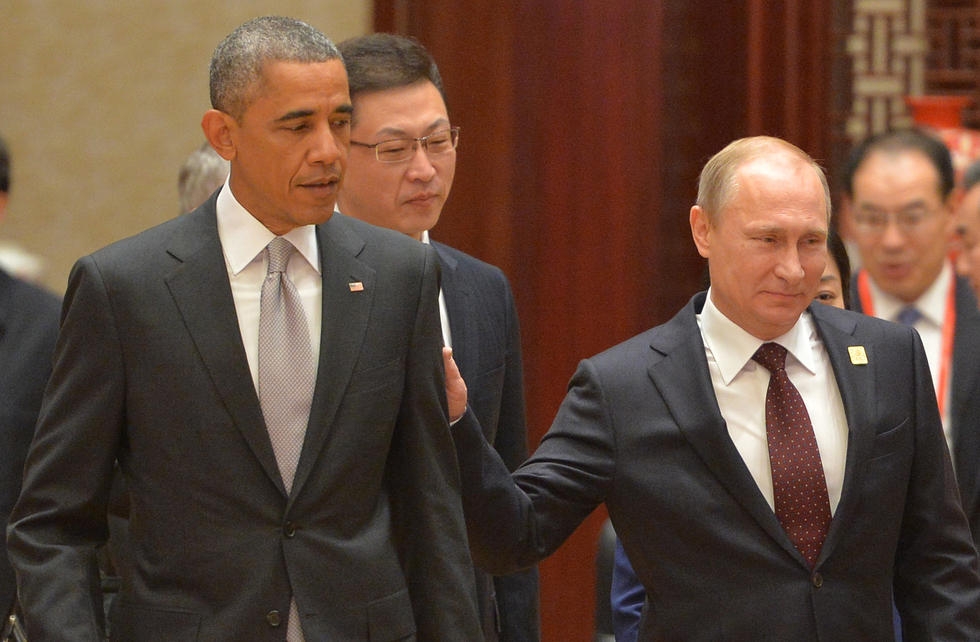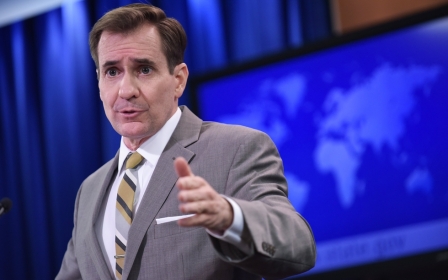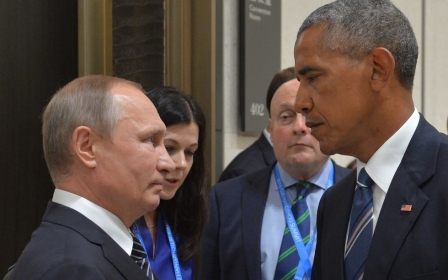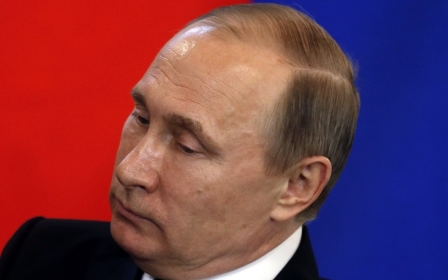ANALYSIS: Obama pulls the plug on 'phony diplomatic process' in Syria

NEW YORK, United States – Washington’s suspension of talks with Moscow on Syria’s conflict could be a weak move, analysts told Middle East Eye. By walking away from the negotiating table, the US could have relinquished any influence in the war.
On Monday, the US suspended talks with Russia aimed at halting the bloodshed in Syria and accused Moscow and the Syrian government of breaking pledges by bombing civilian-packed towns and cities and blocking aid convoys.
The latest breakdown in US-Russian relations came as Syrian government forces, backed by Iranian-linked militias and Russian air power, pounded rebel-held areas of eastern Aleppo in what could be a pivotal moment in the five-year war.
US State Department spokesman John Kirby said suspending talks was “not a decision that was taken lightly”. It came about because Moscow was “unwilling or unable” to reign in the forces loyal to Syrian President Bashar al-Assad.
“Russia and the Syrian regime have chosen to pursue a military course... as demonstrated by their intensified attacks against civilian areas, targeting of critical infrastructure such as hospitals, and preventing humanitarian aid from reaching civilians in need,” Kirby said.
US had 'bad options' regarding Syria
The collapse of US-Russian talks on Syria dashed any lingering hopes of a diplomatic answer to fighting anytime soon. According to analysts, it highlighted the inherent weakness in a US strategy that has been more mouth than muscle.
“The reality is that these talks were never going to bring about a genuine ceasefire, so long as the conflict remains multi-sided and with no real agreement on what a post-conflict Syria looks like,” Jonathan Cristol, an analyst at the World Policy Institute think-tank, told MEE.
US President Barack Obama’s policy on Syria was doomed from the outset because it lacked anything beyond the issuance of “angry statements” to compel Russia or the Syrian government to uphold the 9 September ceasefire deal, Cristol said.
“The Obama administration isn’t going to involve itself in Syria much more than it has already, and it will be left to the next administration to pick up the pieces; if, by that point, there are any pieces left to pick up,” added Cristol.
Aaron David Miller, a former State Department adviser on the Middle East, was more upbeat, telling MEE that Washington had made the right choice when “confronting some very bad options” on Syria.
“The US needed to stop participating in this Potemkin village, which the Russians used to consolidate Assad’s gains on the ground and pretend they were inside the diplomatic tent,” said Miller, an analyst at The Wilson Center, a think-tank.
“Better to pull the plug on a phony diplomatic process and go to one of several difficult options – a kinetic military policy to create some leverage on the ground; or simply waiting until the Russians need, and they will need, a political process to de-escalate this situation.”
'The reality is that these talks were never going to bring about a genuine ceasefire' - Jonathan Cristol, World Policy Institute
The US may consider military options, such as providing more sophisticated arms, logistical support, and training to Syrian rebel groups that US officials have said were being considered, either directly or via Turkey or Gulf monarchies.
But Obama has spoken repeatedly of Syria as a “quagmire” and is loath to get the US sucked into another costly war in the Islamic world. US officials have said he is unlikely to do so with less than four months left in the White House.
The US leads an international air coalition bombing the Islamic State, but the commander-in-chief has authorised little beyond arming handpicked rebels, training and sending a small number of US special forces to northern Syria.
“Withdrawing from talks has no effect on the situation on the ground. This, happening in the last few months of Obama’s presidency, indicates his overall foreign policy failures,” Raed Jarrar, an analyst at the American Friends Service Committee, a Quaker group, told MEE.
“The US cannot claim it is not part of the problem. We have troops there, military intervention there and - at the same time - no leverage over events in the region, and no active diplomatic goals in the region.”
Shift turns to US presidential election
Absent a policy shift before Obama leaves the White House in January 2017, attention then shifts to the Democratic presidential nominee Hillary Clinton and her Republican rival, Donald Trump.
Trump has spoken of deploying an anti-IS ground force and Clinton is more hawkish than Obama, but questions remain over whether any incoming US president would prioritise Syria when rolling out their legacy-defining policy agenda.
“The window of opportunity for Russian President Vladimir Putin is going to stay open longer than January because neither Congress, the public nor a putatively more muscular, risk-ready Clinton will want to make a major military commitment in Syria,” Miller said.
“And half-measures won’t do. Half measures will only raise the stakes for other actors, and it’s their neighbourhood. They have assets, influence and reliable partners on the ground that we don’t have. That is the strategic reality.”
'The window of opportunity for Russian President Vladimir Putin is going to stay open longer than January' - Aaron David Miller, former US State Department adviser
John Kerry, the US secretary of state, threatened last week to end the talks after a ceasefire he and his Russian counterpart, Sergei Lavrov, brokered collapsed after warplanes believed to belong to Russia bombed a UN aid convoy.
In his statement, Kirby said the US would continue to communicate with the Russian military to avoid accidental military interactions over Syria, but that it would withdraw personnel working on military co-operation with Russia under the truce.
News of the suspension of talks came as diplomats at the UN Security Council were beginning to negotiate a French-drafted resolution that urges Russia and the US to ensure an immediate truce in Aleppo.
Russia has already rejected the resolution, arguing that a halt in fighting is not possible.
"If the only effect of that resolution is that the secretary general will start thinking of some monitoring mechanism which is not going to work in the first place, then there is not much sense in having that resolution," Russian ambassador Vitaly Churkin said on Tuesday.
Middle East Eye propose une couverture et une analyse indépendantes et incomparables du Moyen-Orient, de l’Afrique du Nord et d’autres régions du monde. Pour en savoir plus sur la reprise de ce contenu et les frais qui s’appliquent, veuillez remplir ce formulaire [en anglais]. Pour en savoir plus sur MEE, cliquez ici [en anglais].




